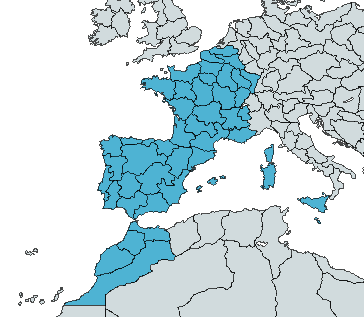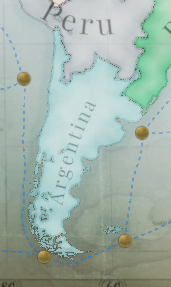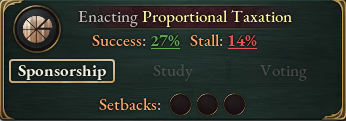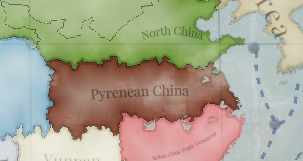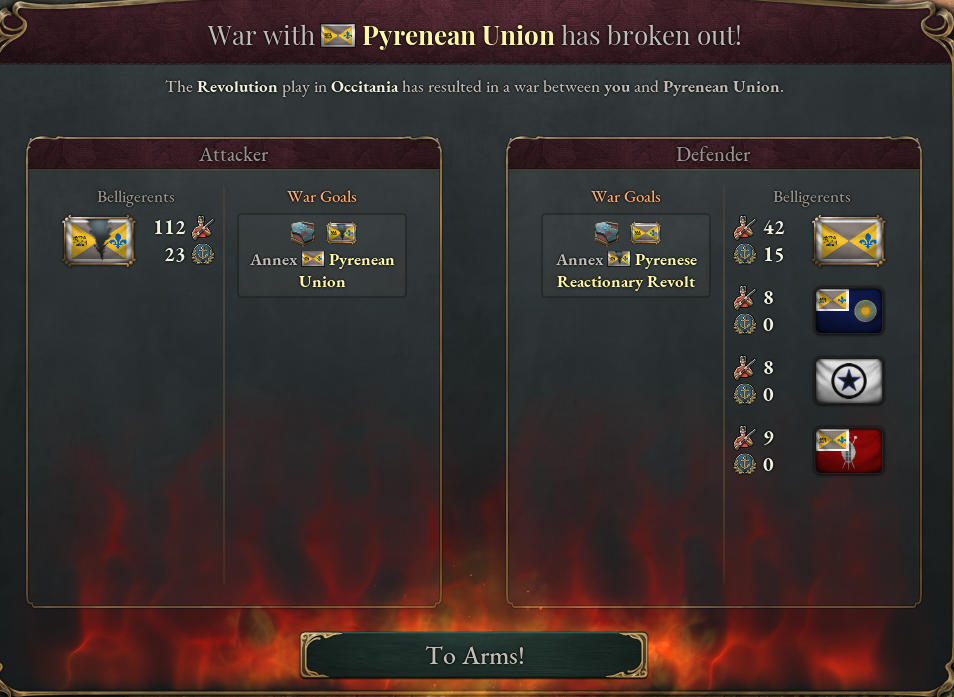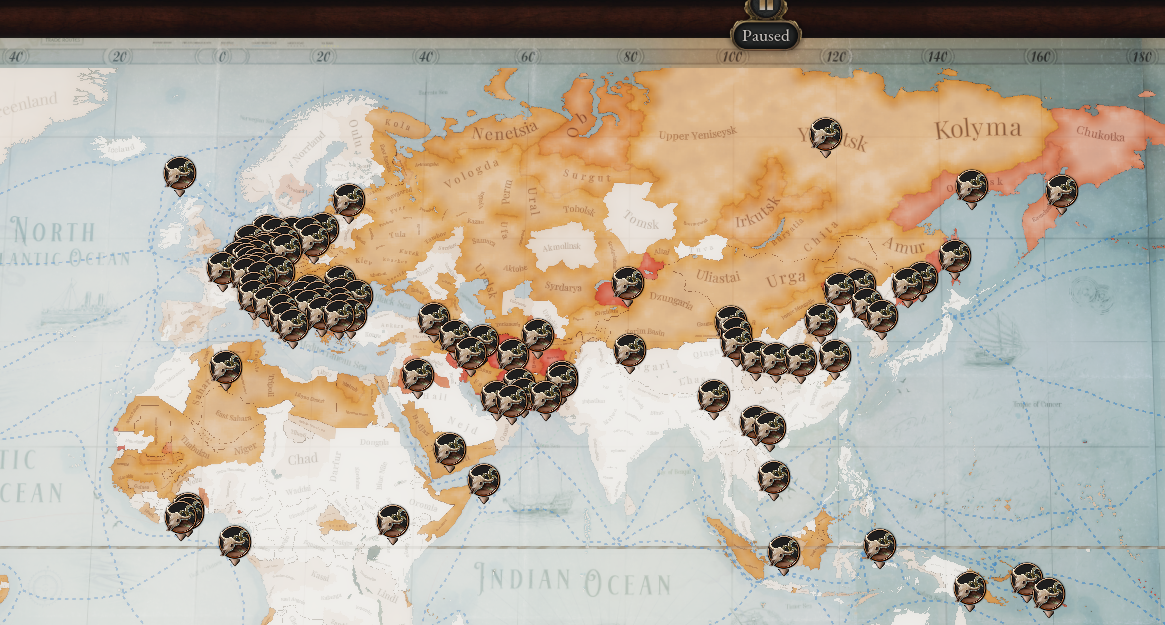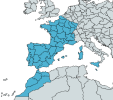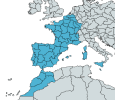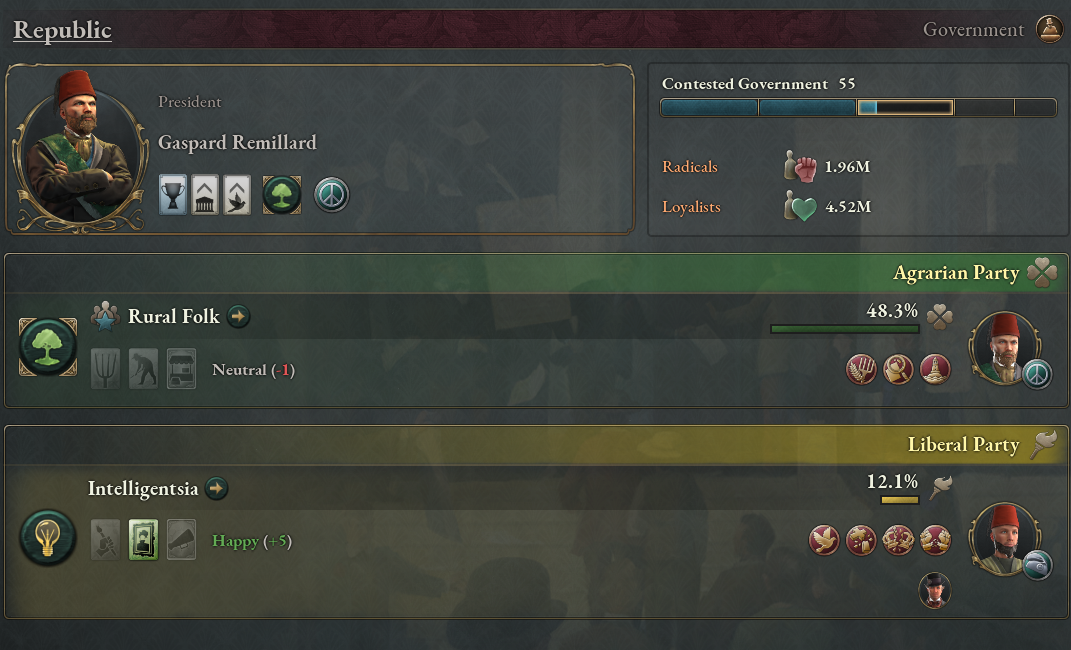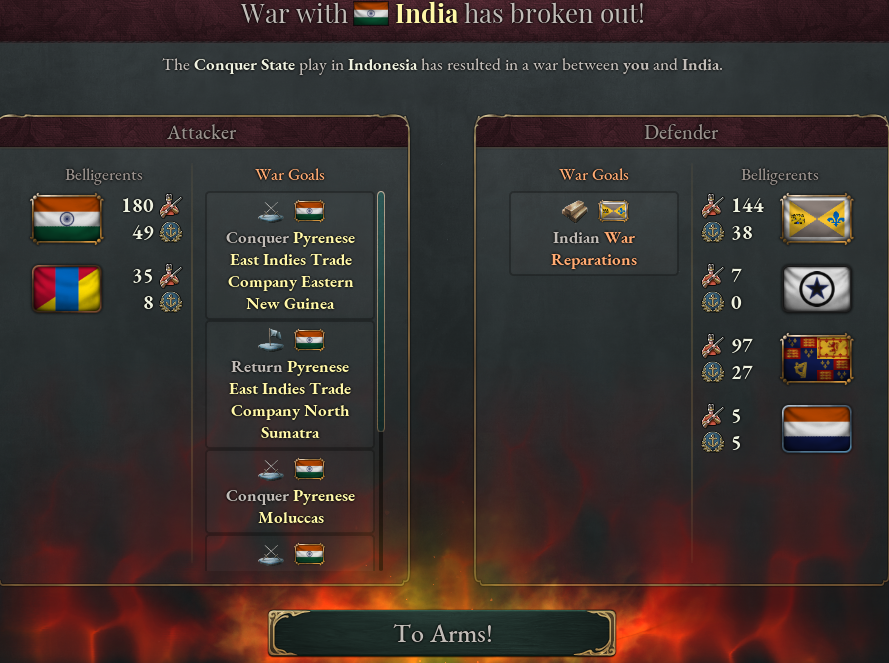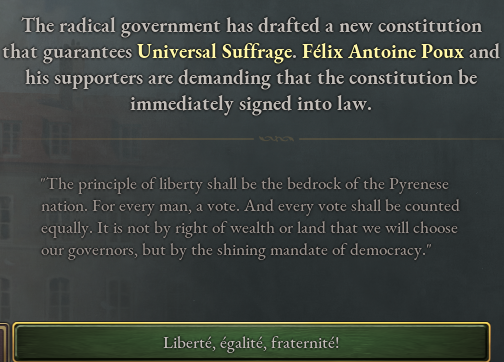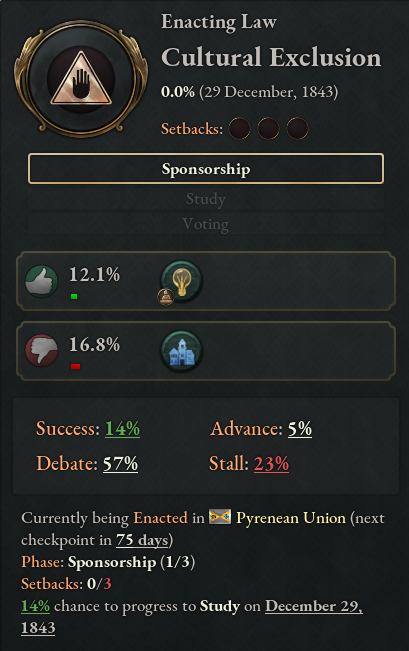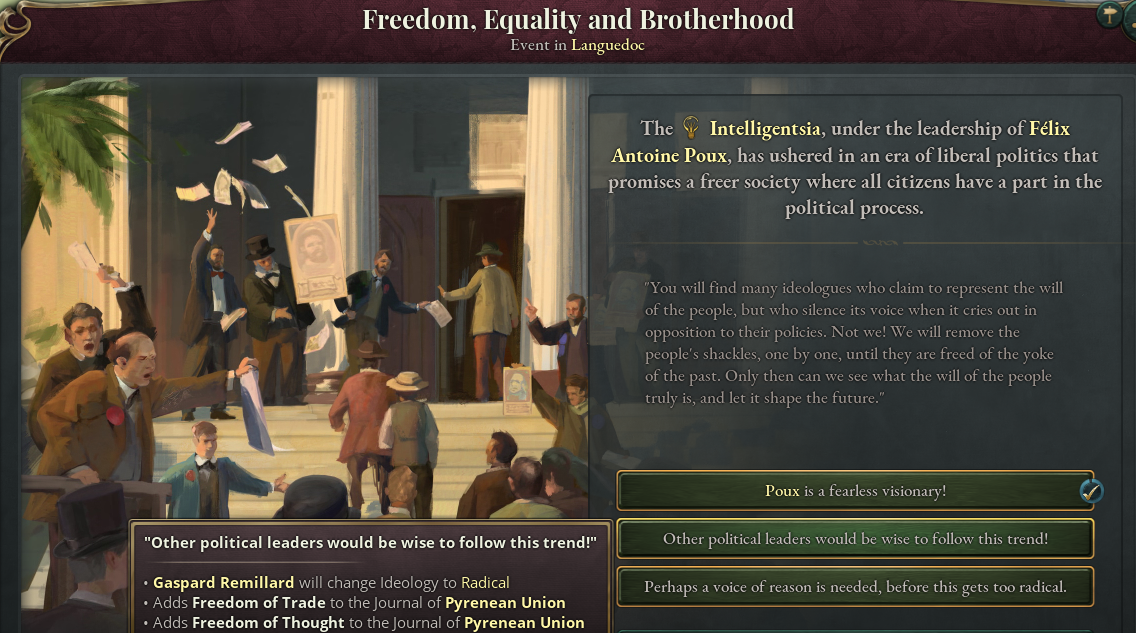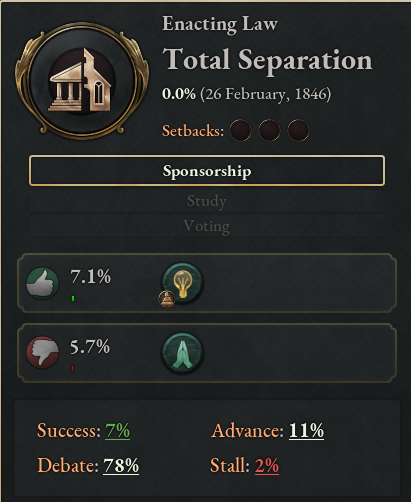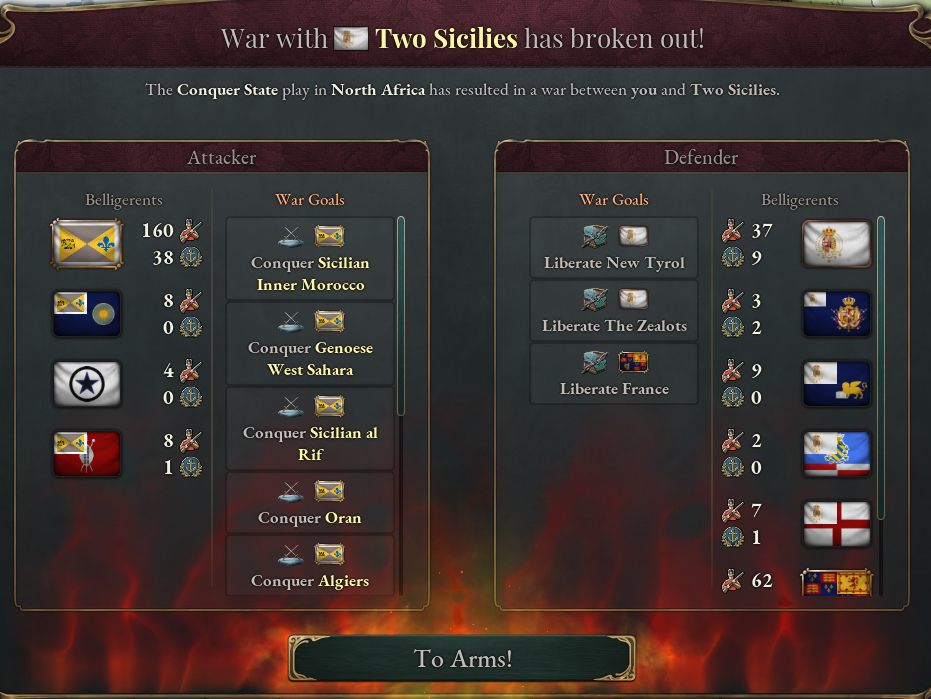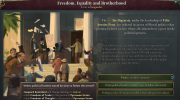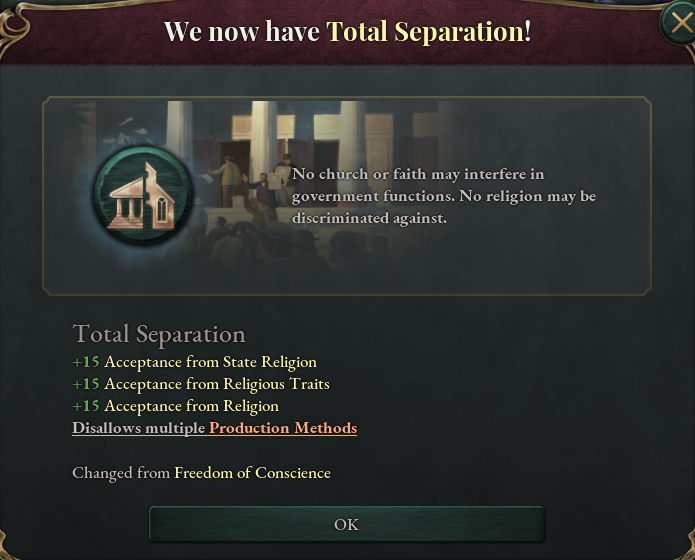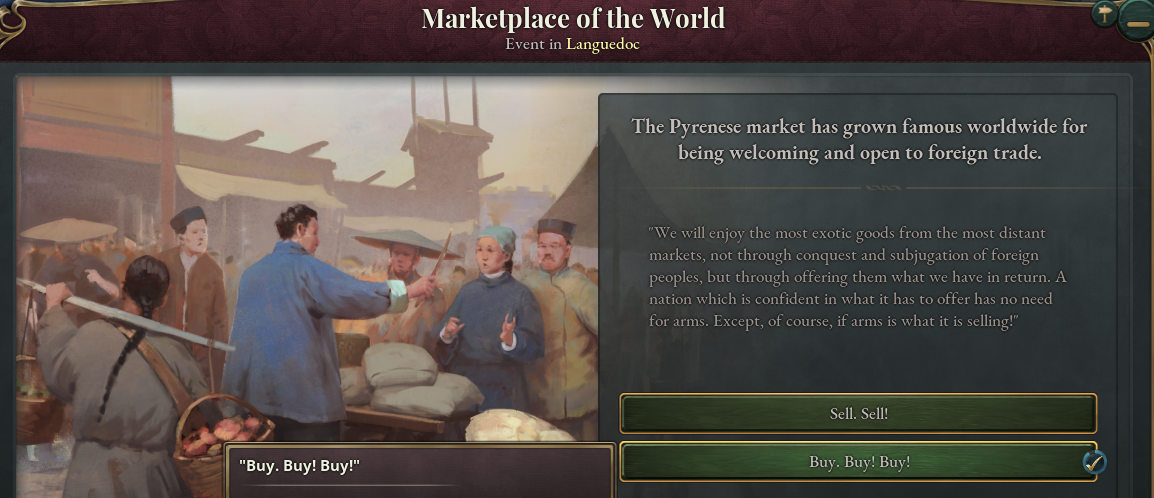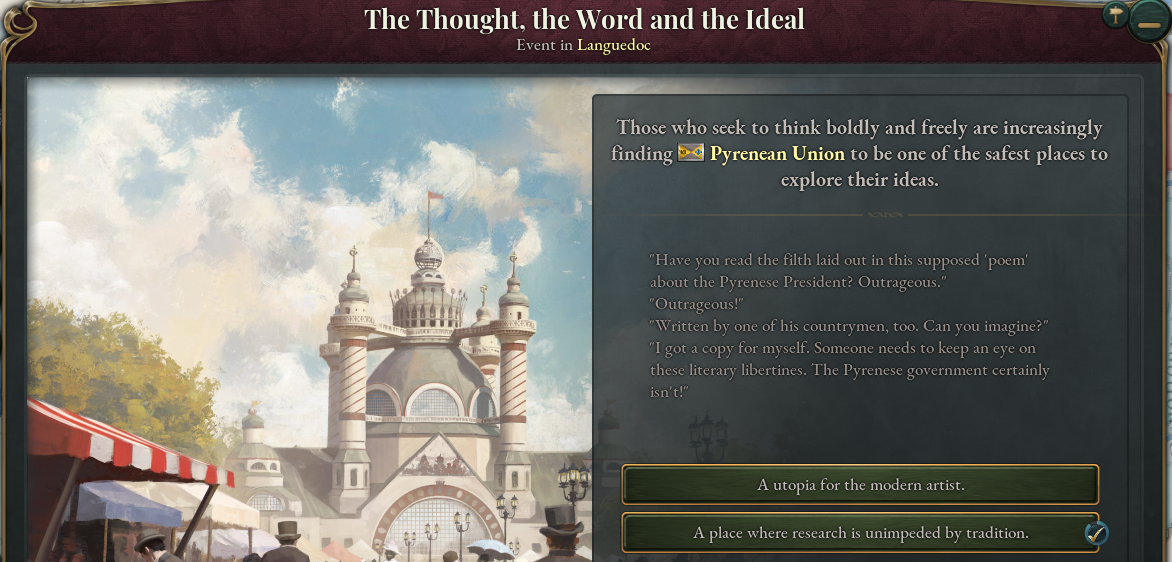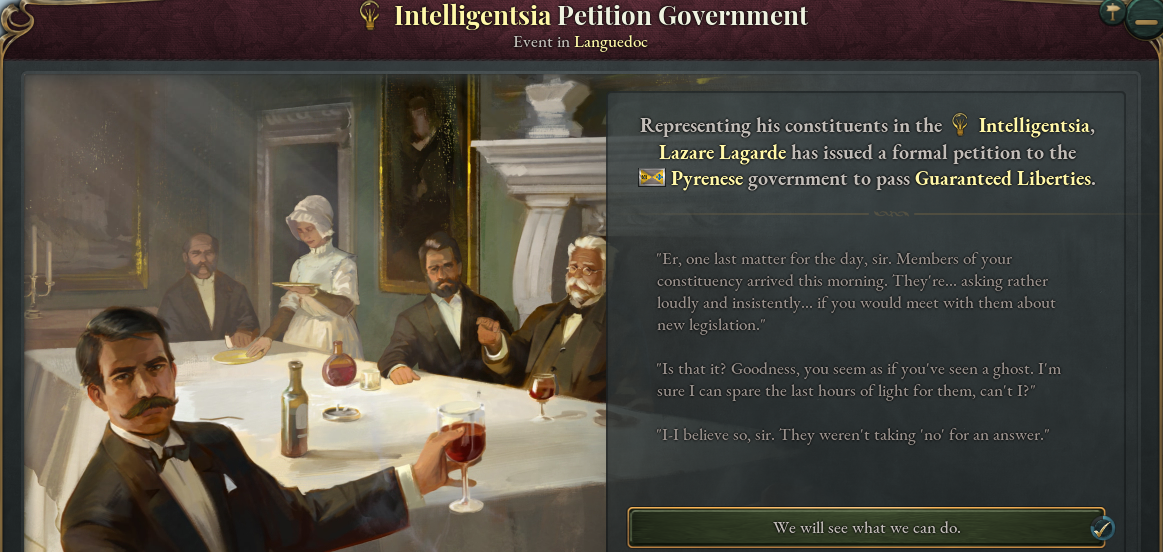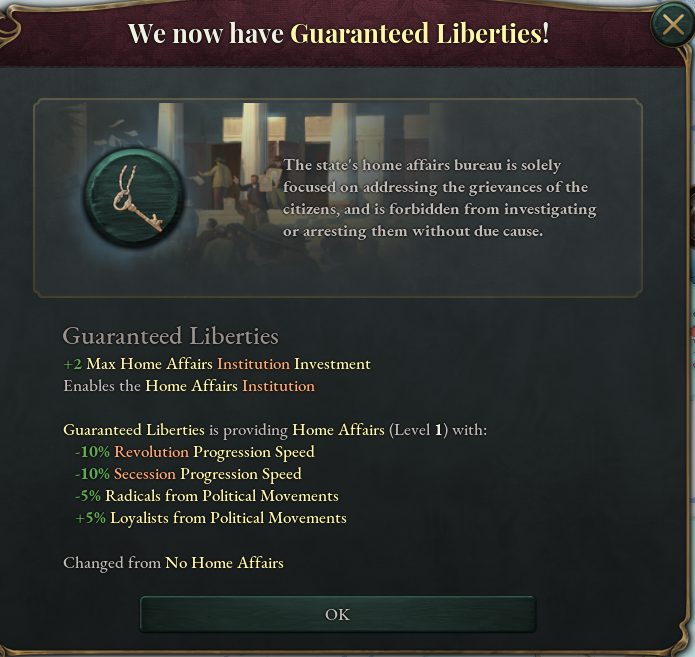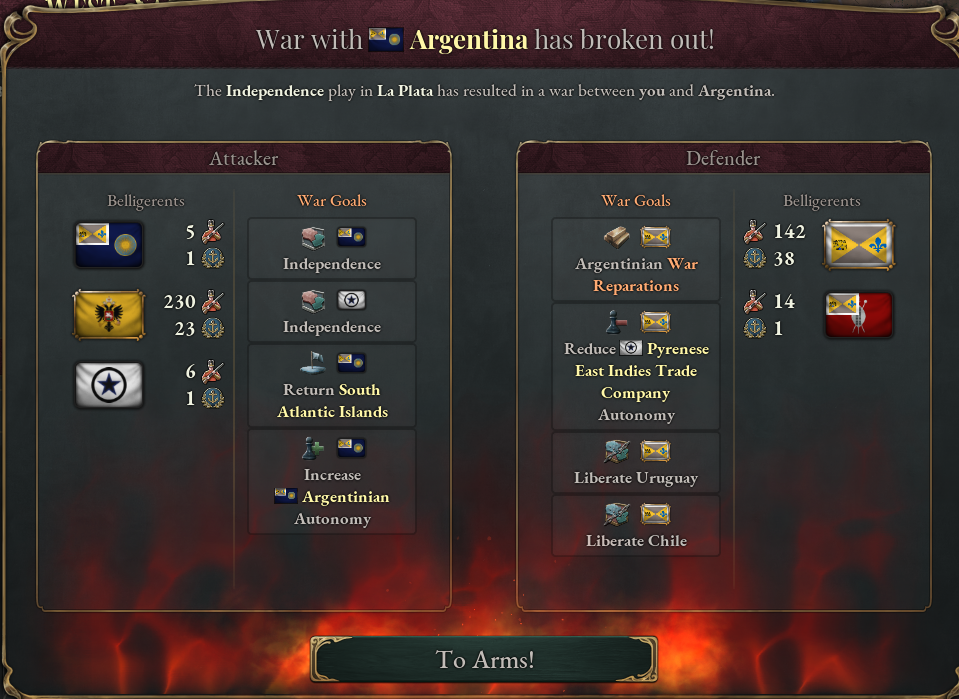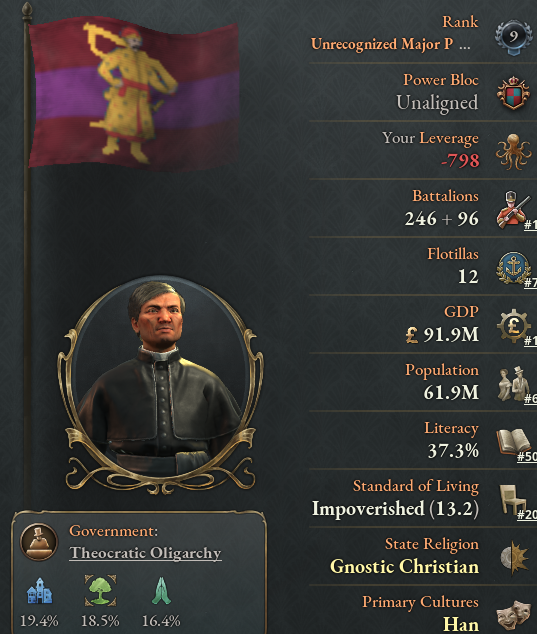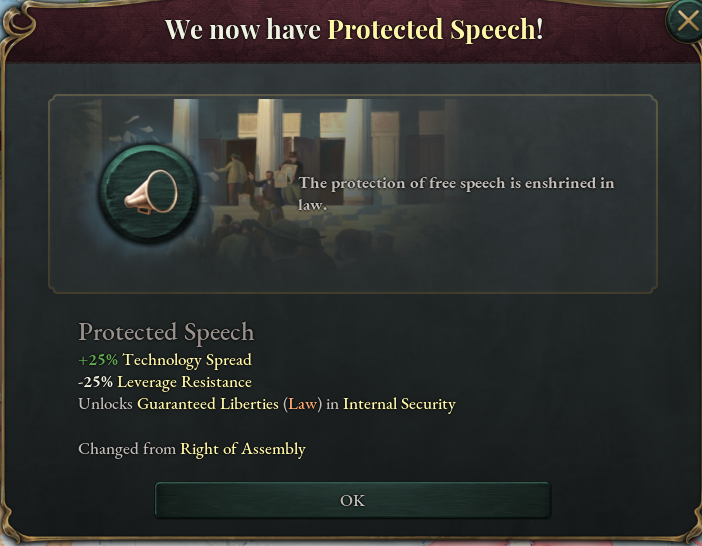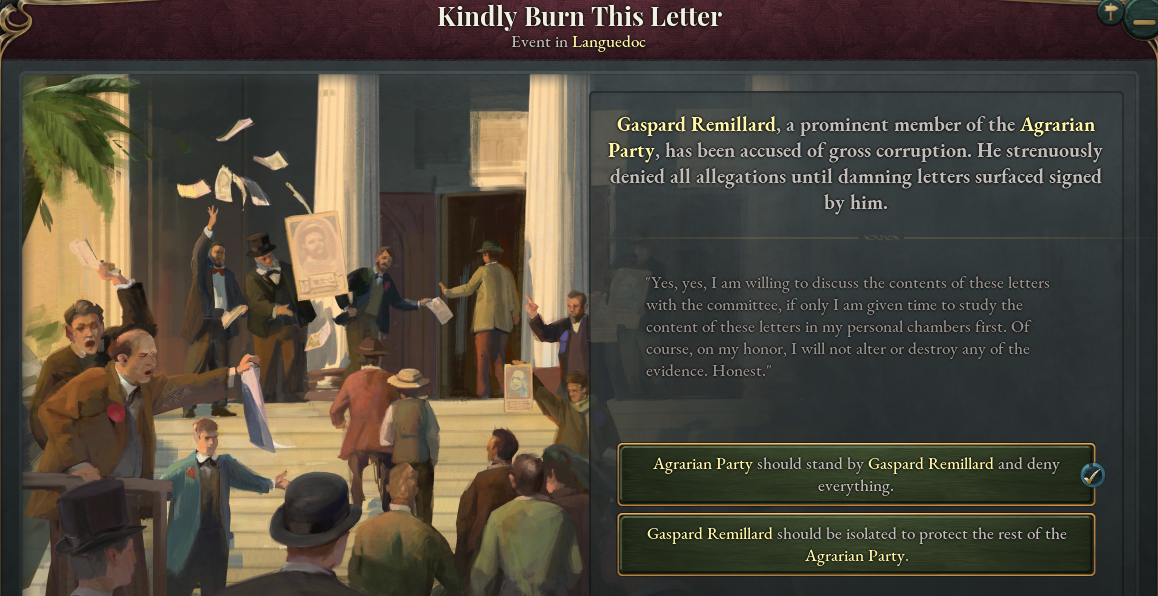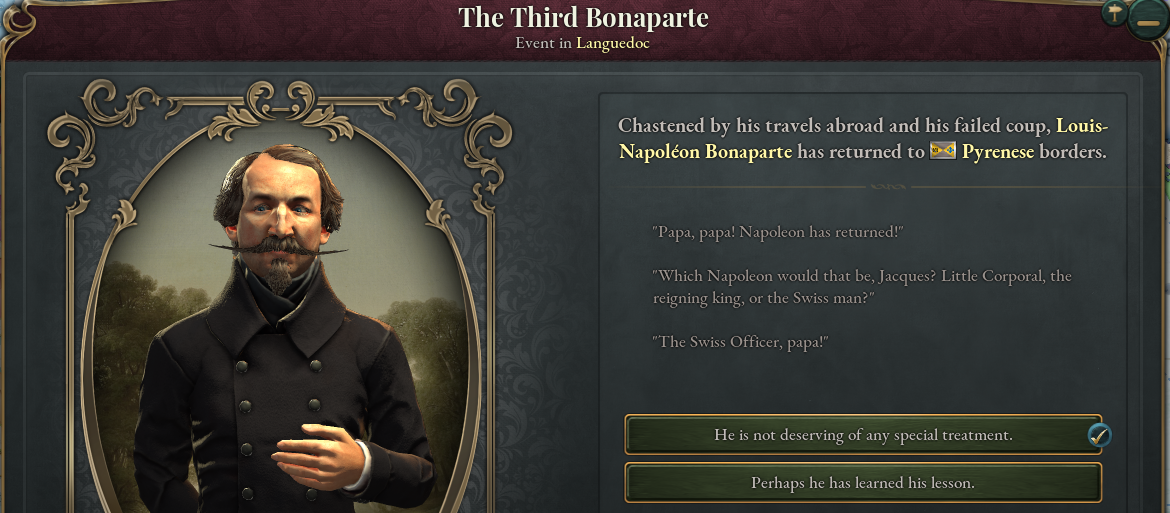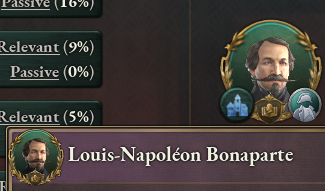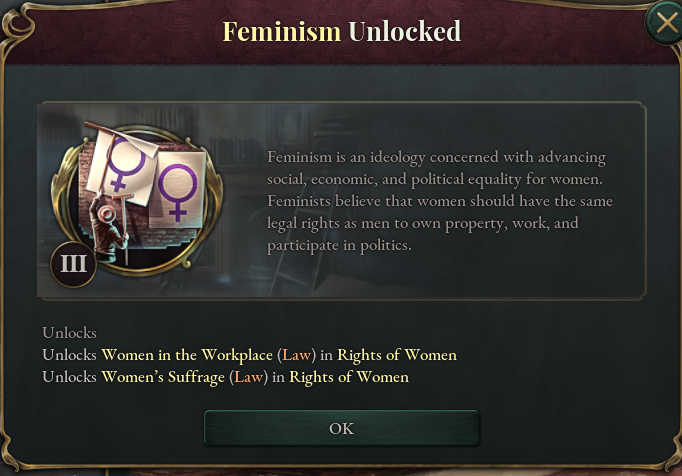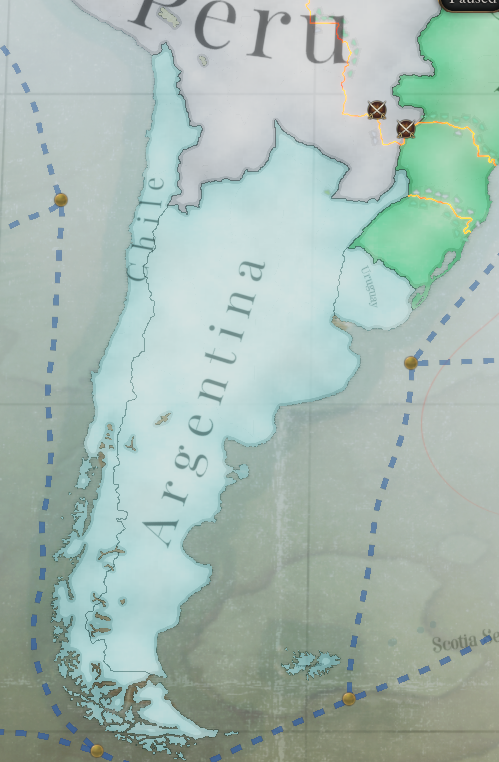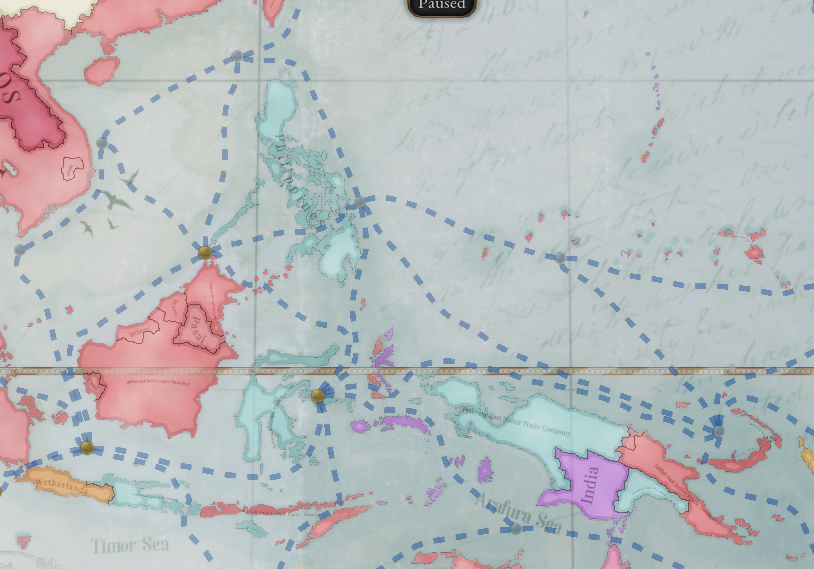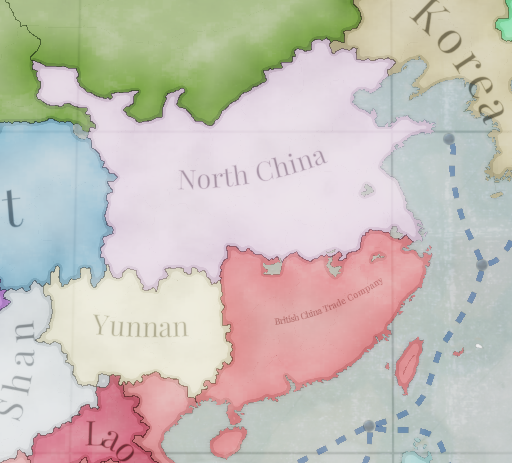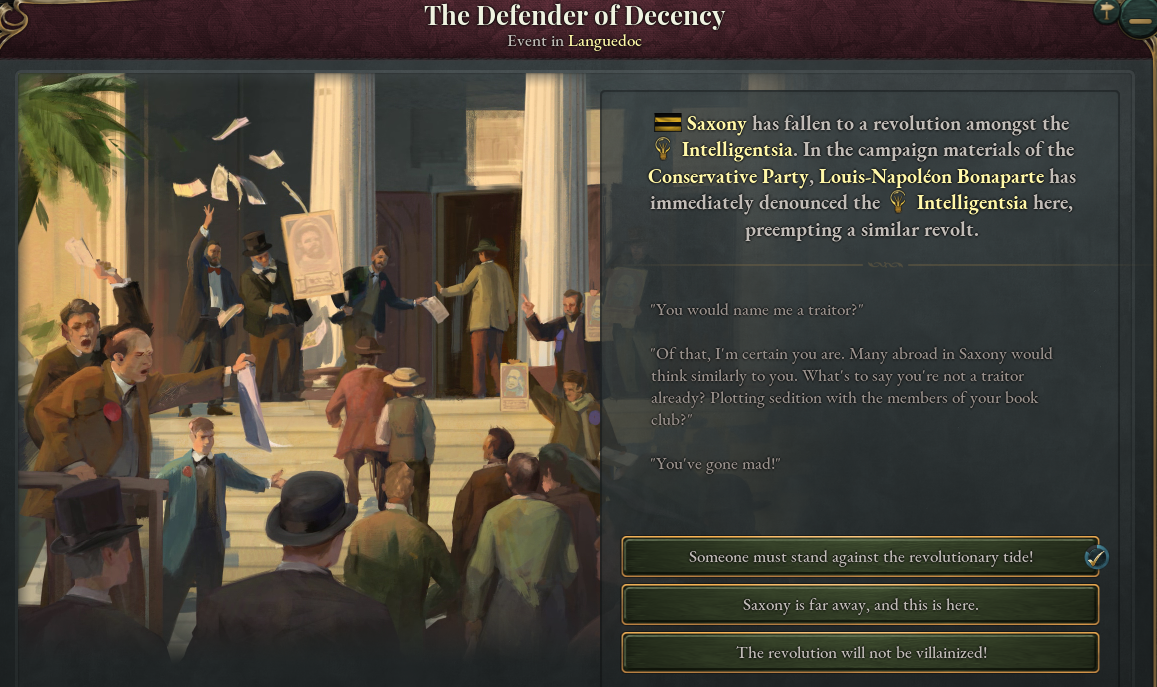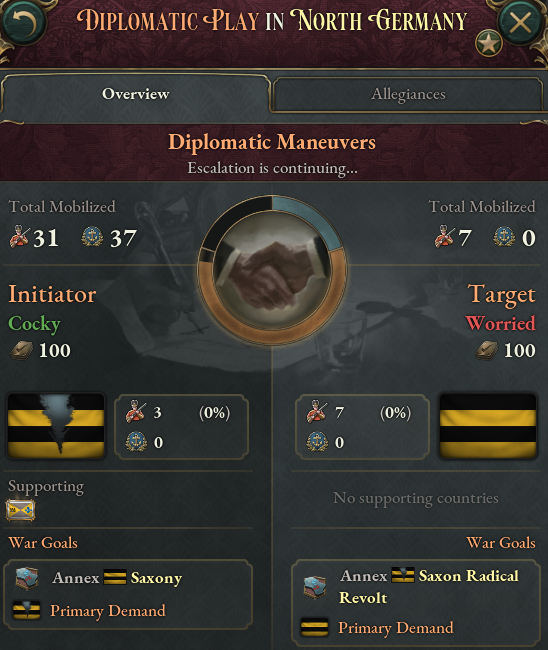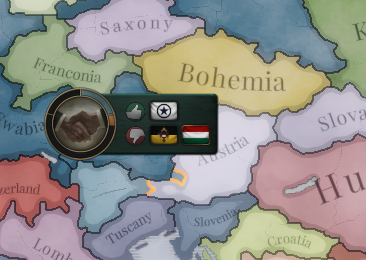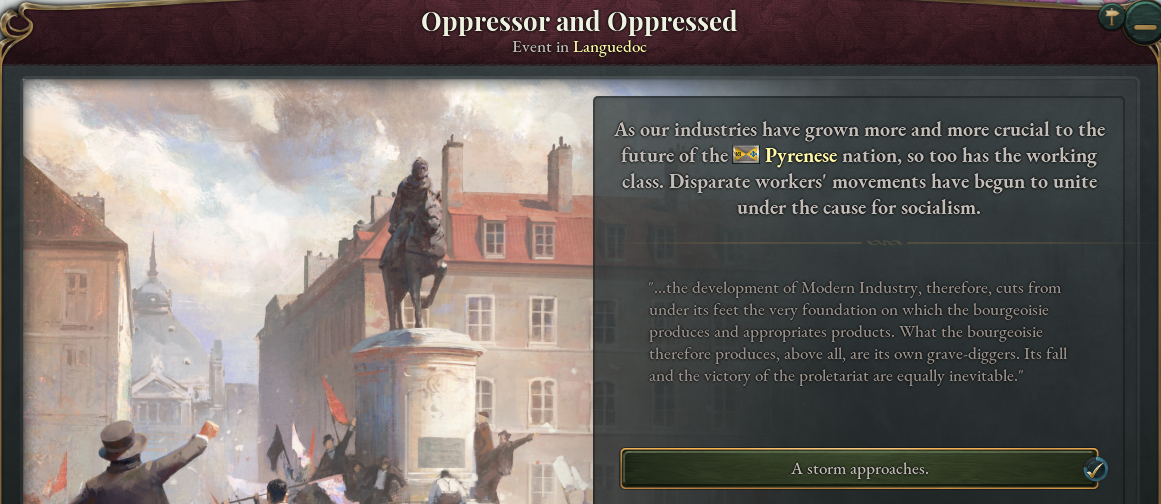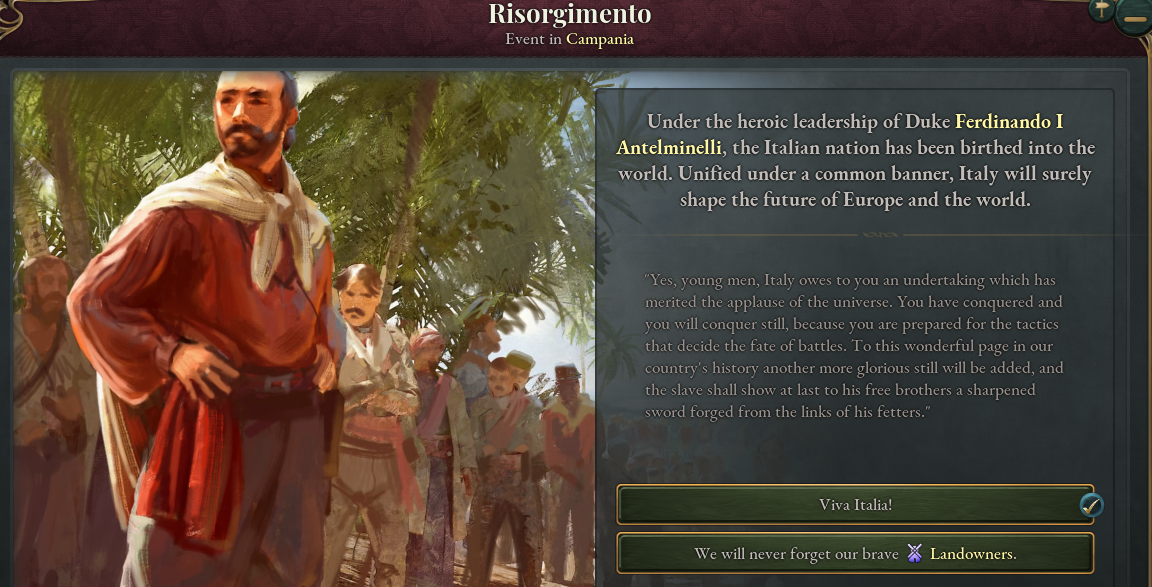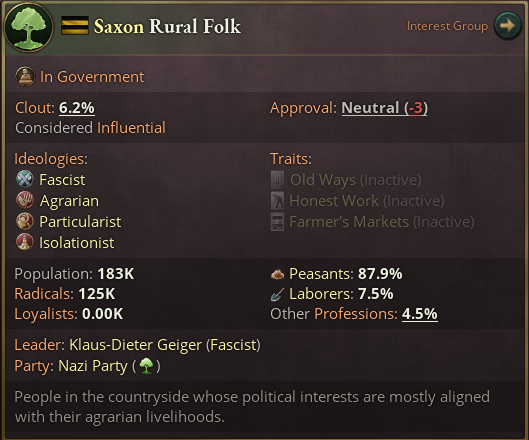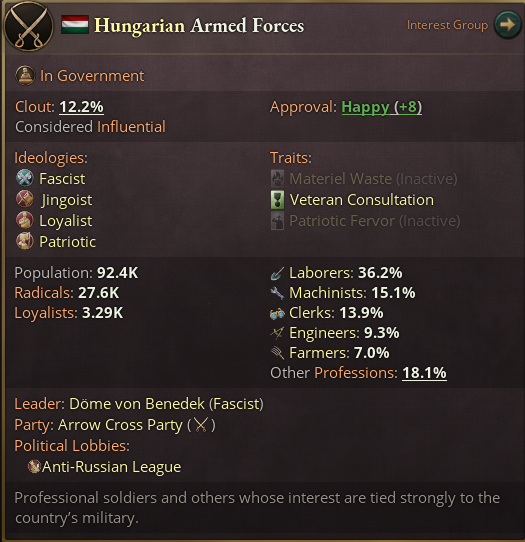Warning! Spoilers ahead!
WARNING!!! SPOILERS AHEAD!!!
-In this game pretty much 2 "Russias" came about. One is, well, Russia, the other one is a strange polity, a hegemon over all of North America. Since Russia is set out to have a more liberal path due to their religion (Gnostic Christianity), I expect them to be a force for "level-headed conservatism" and a constitutional monarchy in an ever-shifting world. The American entity is very absolutist and fanatically religious, so I expect them to go down more akin to what happened to Russia OTL.
-The Two Sicilies (formerly Naples), and Prussia will be the unifiers of Italy and Germany respectively.
-The Pyrenean Union will pursue liberalism and will become the beacon of it, but will definitely colonize a lot and be the dominant power.
-The Chola empire of India will have dominion over the Indian Ocean.
-The Mosecypric Empire will either decline and be like the Ottomans OTL, or they'll be the main antagonist to the Pyrenean Union as a fanatically zealous and staunchly absolutist oriental empire.
-The main colonizing powers will be Great Britain, the Pyrenean Union, Two Sicilies (later Italy), India and Prussia (Germany)
The EU4 installment is still running, I have not yet posted the last few writings about the European Revolution (of which the Pyrenean Union will be the main protagonist of) and the Napoleonic Wars. A quick recap of the first 2 installments:
Starting in CK3, Isaac, a scion of the Jewish von Eberstein trading family, has obtained the Duchy of Tyrol, and his descendants wouuld go on to form the Tyrolean Empire, conquering the Alps, half of Iberia, Anatolia and the Holy Land. In Italy they fought crusades with Catholics. CK3 ended with Emperor Hezekiah III, a brutal tyrant, who, while lost the Eastern part of the empire due to rebelling vassals, chief among them the pretender Mose dynasty of Cyprus, has solidified the Imperial grip on the Western territories which would form the foundation of the Tyrolean Empire in the Age of Discovery.
In EU4, the succeeding Emperors of Tyrol have conquered all of Iberia and France, established colonies all over the world, and fought brutal wars with the HRE and the Brits. They systematically worked to dismantle the power of the nobility, and with the trade from the New World, the burghers took over the reins of power. After the League War, the crazy Empress Samdup, taught by a Hindu brahmin from India, converted to Hinduism and plunged Tyrol into civil war, during which Bavaria invaded and the ancient capital was reduced to ruin. Soon, burghers took power and proclaimed the Pyrenean Union, and founded a brand new capital in the Pyrenees, Kulturburg. While the Union started out pretty democratic, with separation of state and religion, it was always dominated by Jewish merchants and aristocrats and it was only a matter of time before an ambitious family, the de La Mothe, took the reins and made themselves hereditary Presidents. However, revolutionary fervor swept west from Asia, and the people of the Union were now demanding a true republic. The masses executed the last de La Mothe President and established a very unstable revolutionary republic. Using this turmoil, Napoleon, a Corsican Karaite artillery lieutenant, has risen through the ranks and couped the Republic from Corsica, declaring the Corsican Empire, conquering Europe for his cause until he died in his army camp in an illness. His only child, his daughter Penelope, had tried to finish his work of conquering Europe and started a campaign against Russia, but one of Napoleon's former generals, Tarfon de Toledo, betrayed her, letting her 150000 troops in Russia freeze to death while Tarfon proclaimed the Pyrenean Union yet again, and exiled Penelope Buonaparte.
Those who have read the last two installments, thank you, and I hope you will enjoy this one.
The Pyrenean Century awaits!
January 1, 1836 AD
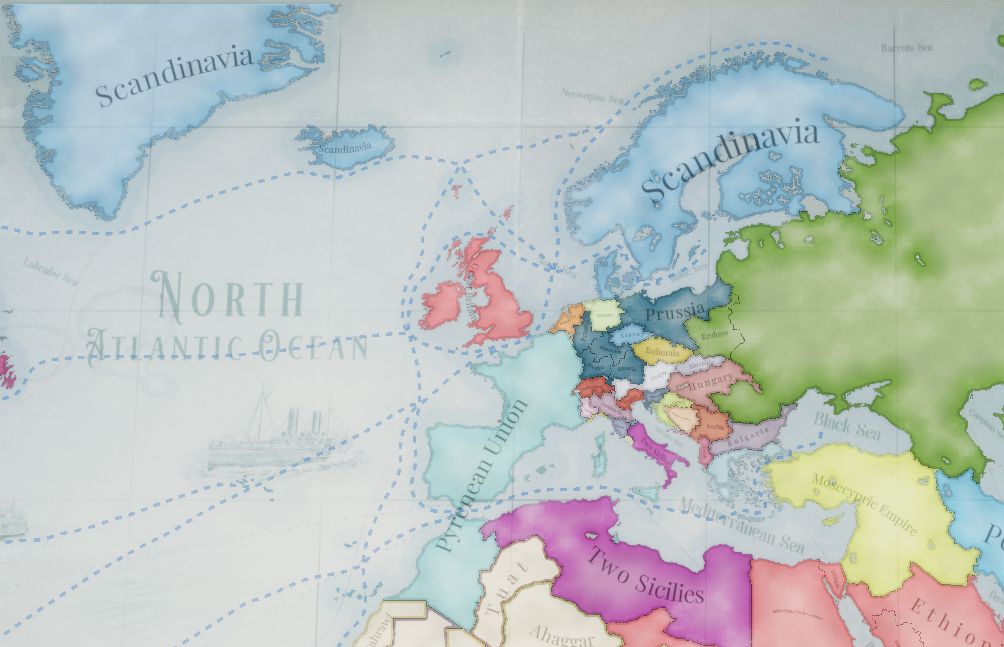
Hello everyone! This is the third installment, the Victoria 3 installment of the Jewish Alps megacampaign. The Vic3 conversion has been very rough, since Vic3 in my opinion is the least moddable of the Paradox games. Like you change something in the file and it stays the same anyways. So annoying. I got a save which got the perfect rolls for the leaders, so at least that is out of the way. I will also attempt to write in a new style for this installment, since I think my original one got pretty stale and uninteresting. I will try a "historian's notes" format, somewhat inspired from the university notes in the CK3 part of AARland (This format originates from @Cora Giantkiller and @Nikolai ), with the difference that it will be more detailed, and will focus on the perspective of a historian more than a student's perspective. #s followed by text will indicate the further notices of developments the historian wrote down which may not be as important. Below are my expectances for this installment:
WARNING!!! SPOILERS AHEAD!!!
-In this game pretty much 2 "Russias" came about. One is, well, Russia, the other one is a strange polity, a hegemon over all of North America. Since Russia is set out to have a more liberal path due to their religion (Gnostic Christianity), I expect them to be a force for "level-headed conservatism" and a constitutional monarchy in an ever-shifting world. The American entity is very absolutist and fanatically religious, so I expect them to go down more akin to what happened to Russia OTL.
-The Two Sicilies (formerly Naples), and Prussia will be the unifiers of Italy and Germany respectively.
-The Pyrenean Union will pursue liberalism and will become the beacon of it, but will definitely colonize a lot and be the dominant power.
-The Chola empire of India will have dominion over the Indian Ocean.
-The Mosecypric Empire will either decline and be like the Ottomans OTL, or they'll be the main antagonist to the Pyrenean Union as a fanatically zealous and staunchly absolutist oriental empire.
-The main colonizing powers will be Great Britain, the Pyrenean Union, Two Sicilies (later Italy), India and Prussia (Germany)
The EU4 installment is still running, I have not yet posted the last few writings about the European Revolution (of which the Pyrenean Union will be the main protagonist of) and the Napoleonic Wars. A quick recap of the first 2 installments:
Starting in CK3, Isaac, a scion of the Jewish von Eberstein trading family, has obtained the Duchy of Tyrol, and his descendants wouuld go on to form the Tyrolean Empire, conquering the Alps, half of Iberia, Anatolia and the Holy Land. In Italy they fought crusades with Catholics. CK3 ended with Emperor Hezekiah III, a brutal tyrant, who, while lost the Eastern part of the empire due to rebelling vassals, chief among them the pretender Mose dynasty of Cyprus, has solidified the Imperial grip on the Western territories which would form the foundation of the Tyrolean Empire in the Age of Discovery.
In EU4, the succeeding Emperors of Tyrol have conquered all of Iberia and France, established colonies all over the world, and fought brutal wars with the HRE and the Brits. They systematically worked to dismantle the power of the nobility, and with the trade from the New World, the burghers took over the reins of power. After the League War, the crazy Empress Samdup, taught by a Hindu brahmin from India, converted to Hinduism and plunged Tyrol into civil war, during which Bavaria invaded and the ancient capital was reduced to ruin. Soon, burghers took power and proclaimed the Pyrenean Union, and founded a brand new capital in the Pyrenees, Kulturburg. While the Union started out pretty democratic, with separation of state and religion, it was always dominated by Jewish merchants and aristocrats and it was only a matter of time before an ambitious family, the de La Mothe, took the reins and made themselves hereditary Presidents. However, revolutionary fervor swept west from Asia, and the people of the Union were now demanding a true republic. The masses executed the last de La Mothe President and established a very unstable revolutionary republic. Using this turmoil, Napoleon, a Corsican Karaite artillery lieutenant, has risen through the ranks and couped the Republic from Corsica, declaring the Corsican Empire, conquering Europe for his cause until he died in his army camp in an illness. His only child, his daughter Penelope, had tried to finish his work of conquering Europe and started a campaign against Russia, but one of Napoleon's former generals, Tarfon de Toledo, betrayed her, letting her 150000 troops in Russia freeze to death while Tarfon proclaimed the Pyrenean Union yet again, and exiled Penelope Buonaparte.
Those who have read the last two installments, thank you, and I hope you will enjoy this one.
The Pyrenean Century awaits!
Last edited:
- 1


